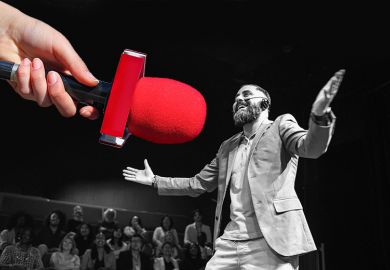A free ‘city app’ will feature ‘learning journeys’ built by the local university around the most common questions in the area
Urbanisation has driven a quintupling in the number of students in tertiary education worldwide over the past 40 years. Cities drive demand for education because of the higher-level skills needs of their economies, while education drives urbanisation because cities are where educated and skilled people can find work and want to live.
However, adding more and more physical infrastructure, either to universities or to urban systems more generally, is no longer financially or environmentally sustainable.
An important part of the solution is to deliver services and functions digitally. Universities across the globe are building online capacity, and cities are adopting systems such as real-time management of traffic flows to use existing road capacity more efficiently. And universities have a key role to play in facilitating the further smart management of supply and demand by analysing the mushrooming data flows from an emerging “internet of things” that includes everything from buildings to smartphones.
For example, The Open University, the University of Cambridge and the University of Bedfordshire have partnered with BT to build a state-of-the-art data infrastructure for Milton Keynes, part-funded by the Higher Education Funding Council for England. This will support applications like the MK Motion Map, which will allow users to enter into their tablet or smartphone details of a journey they want to make, and then receive back a range of door-to-door travel options. The aim is to provide an alternative to the private car that is just as flexible and convenient.
Other examples of “on demand” services that can be delivered by smartphone apps include suggestions about where to eat or park, alerts that the garden needs watering, remote operation of domestic heating systems and, most relevantly to universities, instant solutions to learning needs.
We often don’t realise what we give away when we shop with a store card, drive past a street sensor or switch on the kettle, but the fact is that we are all data donors. Explicit recognition of this could not only create the informed consent currently often lacking, but could also encourage learning and promote truly smart cities.
For example, the local energy company could work with a university to produce a free, bite-sized course on home energy efficiency in exchange for harvesting energy use data for research and development. And although massive open online courses are free, universities could rethink them as “reward points” for information sharing. Smartphones could become the university in your pocket, enabling learning that starts with connections everyone has with where they live.
These journeys will often start with an enquiry. Imagine in the future that you’ve just lost your job and you are wondering how to cut your energy bill to help cope with your reduced income. A “city app” might be where you look; this app, offered free when you register to vote, features “learning journeys” built by the local university around the most common questions.
Back comes a response, including a satellite image of your home showing heat loss compared with the same house-type fully insulated, and explaining where to get help with insulation. Wanting to learn more, you follow a link to data showing the current solar power generating capacity of your neighbourhood, and calculating how many more solar panels it would take to make it energy self-sufficient. There is also a video about how the local council is creating a smart cluster of green technology companies – and you see that they’re recruiting.
Another click takes you to a free Mooc on renewable energy, part of a degree course on green technologies. The Mooc platform works with employers to help them spot talent. Having done really well in the online quiz, you get a call offering an interview. A company hires you and sponsors you on the degree course while you continue to work for it.
In this way, with universities and urban authorities working together, it will become possible for smart cities not only to learn from their citizens, but also to offer lifelong learning opportunities to them in return.
Register to continue
Why register?
- Registration is free and only takes a moment
- Once registered, you can read 3 articles a month
- Sign up for our newsletter
Subscribe
Or subscribe for unlimited access to:
- Unlimited access to news, views, insights & reviews
- Digital editions
- Digital access to THE’s university and college rankings analysis
Already registered or a current subscriber?






